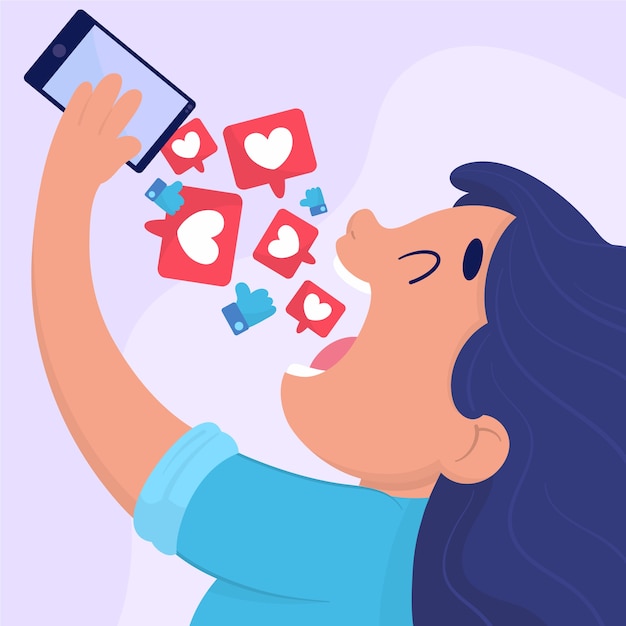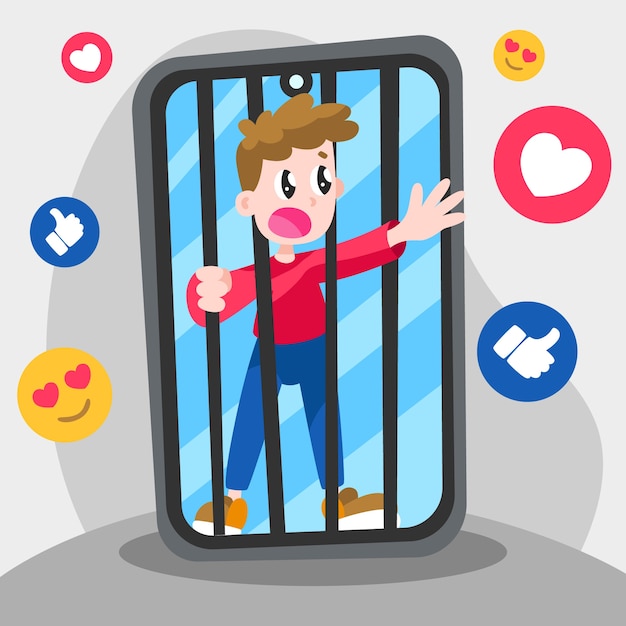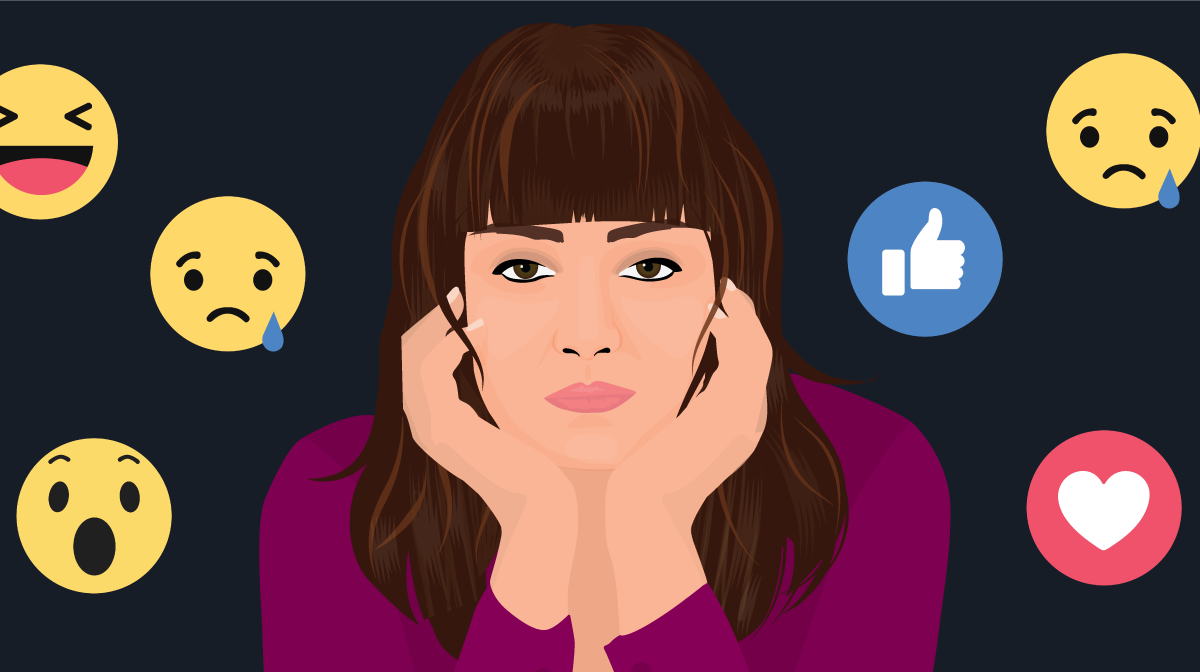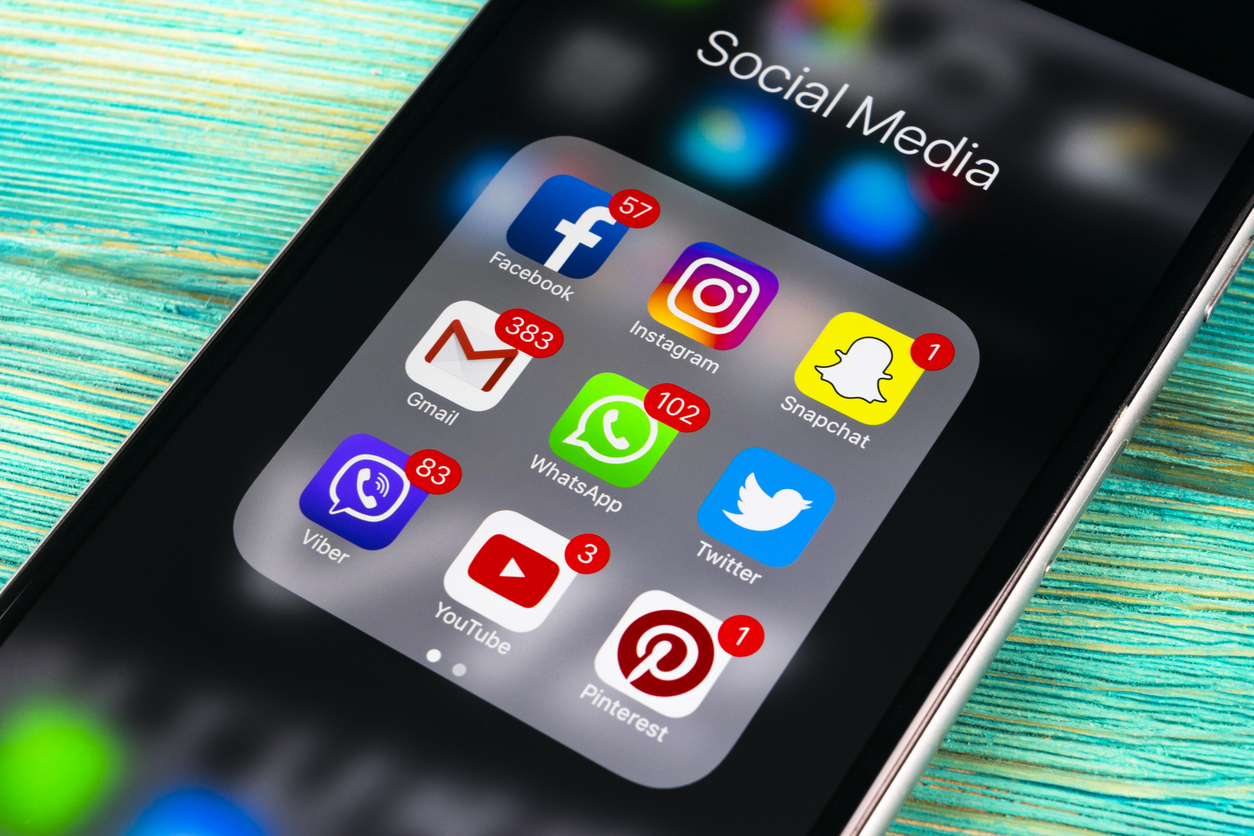
You’re probably reading this because you’re on your phone right now and have nothing else to do. Most of our time in a day goes through scrolling through Instagram or making friends on Facebook. Sometimes we become so involved in the inside world that we forget about the outside world for a while. Tell me if i’m wrong, but what’s the first thing you do when you wake up in the morning? Check your phone right? The first thing that probably pops in your head is “let’s see how many likes my post got.” Seems like social media addiction?
Why have we become like this? So indulged in the world of social media that, that’s all we see. Now it has its perks too, but we all know, too much of anything is not good. Well, let’s jump right into the diseases our new generation is going through, Social Media Addiction.
What Is Social Media And Why Is It So Important?

Social media is any digital tool which you can use to connect to friends and family, create and share content. It is basically a platform which allows you to connect with people virtually. Facebook allows you to keep in touch with friends and family who are far away from you. Instagram allows you to show off your photography skills and see others too. Facebook gives you an option of adding people as your friends, whether they may or may not be your real friend. You might have 10 friends in real life, but who cares? at least you have 1000 friends on Facebook right? Instagram on the other hand lets you follow people that you may or may not know. All of a sudden life has become about trying to get a thousand followers on Instagram.
Yes, it allows you to keep in touch with family and friends who are distant. But the misuse of it may lead to us losing the friends and family we have close by. So I’m not saying,don’t use it. Use it but use it well and know when to stop.
When Do You Know It’s An Addiction?

Majority of peoples’ use of social media is non-problematic, there is just a small percentage of users that become addicted to social networking sites and engage in excessive or compulsive use. This type of addiction is a behavioural addiction that is characterized as being overly concerned about your social media, driven by an uncontrollable urge to start scrolling and devoting so much time and effort that it impairs other important areas in your life.
Addiction to social media looks just like addiction of any other substance. These are the symptoms:
- Mood Modification– engagement in social media leads to a favorable change in emotional states.
- Importance– you can’t live without it.
- Tolerance– ever increasing use of social media over time.
- Withdrawal Symptoms– experiencing unpleasant physical and emotional symptoms when social media use is restricted or stopped.
- Conflict– interpersonal problems ensue because of social media usage.
- Relapse– addicted individuals quickly revert back to their excessive social media usage after an abstinence period.
The phenomena of social media addiction can largely be contributed to the dopamine-inducing social environments that social networking sites provide. Those platforms produce the same neural circuitry that is caused by drugs and gambling. To keep consumers using their products as much as possible. Studies have shown that the constant stream of retweets, likes, and shares from these sites have affected the brain’s reward area to trigger the same kind of chemical reaction as other drugs. In fact, neuroscientists have compared social media interaction to a syringe of dopamine being injected straight into the system.
Its Effect On Your Brain

Due to the effect it has on your brain, social media is addictive both physically and psychologically. Studies have shown that self-disclosure on social networking sites lights up the same part of the brain that also ignites when taking an addictive substance. The reward area in the brain and its chemical messenger pathways affect decisions and sensations. When someone experiences something rewarding, or uses an addictive substance, neurons in the principal dopamine-producing areas in the brain are activated, causing dopamine levels to rise. Therefore, the brain receives a “reward” and associates the drug or activity with positive reinforcement.
When an individual gets a notification, such as a like or mention, the brain receives a rush of dopamine and sends it along reward pathways, causing him or her to feel pleasure. It provides an endless amount of immediate rewards in the form of attention from others for relatively minimal effort. Therefore, the brain rewires itself through this positive reinforcement, making people desire likes, retweets, and emoticon reactions.
Another perpetuating factor of social media addiction is the fact that the reward centers of the brain are most active when people are talking about themselves. In real life, it’s estimated that people talk about themselves around 30 to 40% of the time. However, it is all about showing off one’s life and accomplishments, so people talk about themselves 80% of the time. When a person posts a picture and gets positive social feedback, it stimulates the brain to release dopamine, which again rewards that behavior and perpetuates the habit.
Social media use becomes problematic when someone views social networking sites as a coping mechanism to relieve stress, loneliness, or depression. For these people, social media use provides continuous rewards that they’re not receiving in real life. This continuous use eventually leads to multiple interpersonal problems, such as ignoring real life relationships, work or school responsibilities, and physical health.
Social Media And Your Mental Health

Research has shown that there is an undeniable link between social media use, negative mental health and low self-esteem. While these platforms have their benefits, using them too frequently can make people feel increasingly unhappy and isolated. These negative emotions are not only produced due to the social pressure of sharing things with others but also comparing yourself to others. While scrolling through social media, people may see a post by an individual that has a great job, an amazing partner or beautiful home and feel happy or inspired by this person. Others, however, may see these pictures and feel jealous, depressed, or even feel suicidal due to the fact that their own life is not as “perfect” as those that they see it on these platforms.
Recent studies have found that frequent social media users believe that other users are happier and more successful than they are, especially when they do not know them in real life. Social media facilitates an environment in which people are comparing their realistic offline selves to the flawless, filtered, and edited online versions of others, which can be detrimental to mental well-being and perception of self.
Another aspect of social anxiety triggered by online media use is the fear of missing out, FOMO- the extreme fear of not being included or missing a social event. FOMO can take a toll on self-esteem and lead to compulsive checking of social media platforms to ensure that you’re not missing out on anything.
Let’s Break The Addiction

- Figure out why you’re using social media so much.
Ask yourself: Why do you open Instagram and Facebook in the first place?
If your answer is, “There’s no reason, I just like scrolling through my Instagram feed”? Then, take a closer look at your motive. Are you bored, stressed out, feeling disconnected from the outside world or just overwhelmed? Figure out how you are feeling.
- Make the itch less easy to scratch.
This step is to implement three to four tactics that keep social media a little far away from you at times. These could include deleting social media apps from your phone, using a newsfeed blocker on your desktop, keeping your phone out of your bedroom, setting your phone to Do Not Disturb or turning off app notifications.
- Find alternatives.
This step is to replace the negative routine of checking your social media with a new routine. Come up with something positive and productive.
- Accountability
The fourth step is to repeat the new habit over and over again.
Self-discipline becomes a whole lot easier when you’re not on your own. Outsource your discipline by enrolling a friend to keep you on track.
- Reward yourself.
This step is to train your brain that the new routine is a good thing by rewarding it for a job well done until the habit is strong enough to happen automatically.
Wrapping Up
We all know social media plays a big part in our lives. But we get to control how much we let it control our lives. Of course, there’s a lot good about social media but you should know when to stop.
Read more on Social Media during Social Isolation.



Pingback: English words originated in India and used in India | Entertainment | BTP
Pingback: FOMO- You Feeling It? | Entertainment | Life | BTP